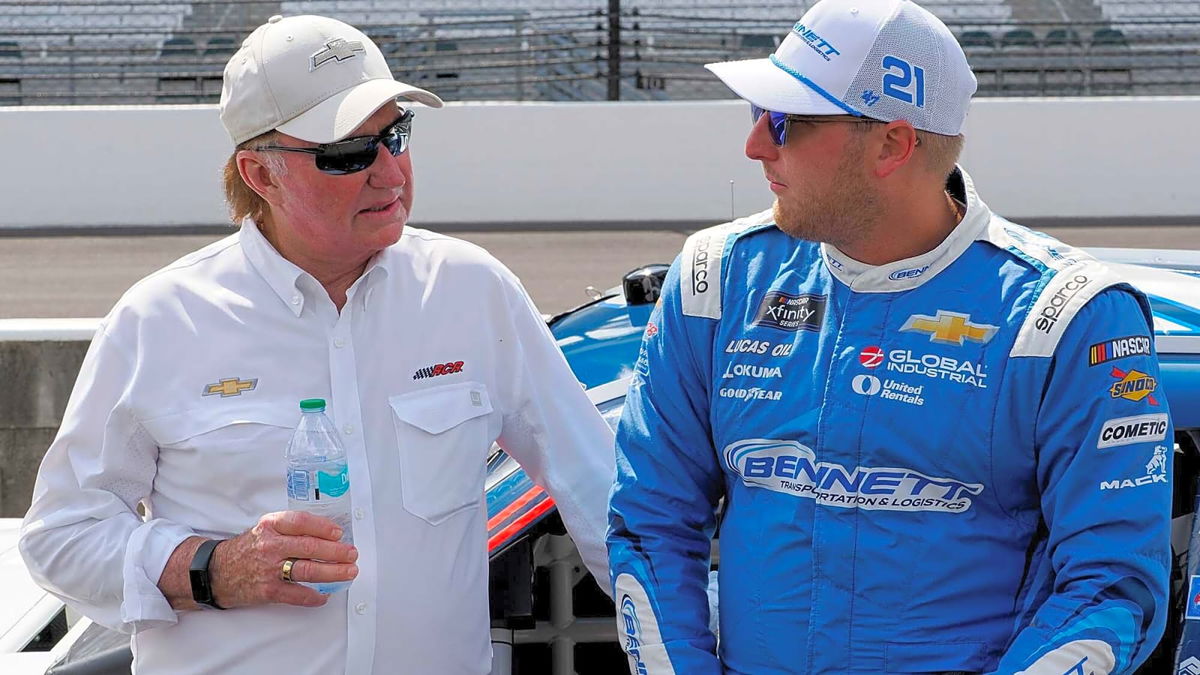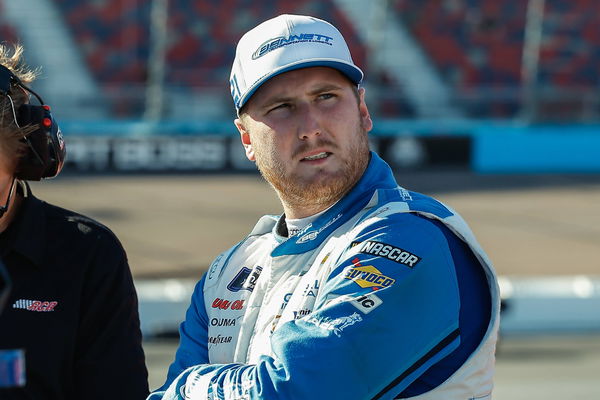
USA Today via Reuters
Bob Goshert/For IndyStar / USA TODAY NETWORK via Imagn Images

USA Today via Reuters
Bob Goshert/For IndyStar / USA TODAY NETWORK via Imagn Images
The buzz in the Richard Childress Racing camp was still fresh, with Austin Hill poised for a breakthrough season in the Xfinity Series. Just days before the now-infamous Pennzoil 250 at Indianapolis Motor Speedway, the focus was on prospects, not penalties. That changed in an instant on Lap 91, where wrecks and radioed frustrations sent shockwaves across the paddock. Social media lit up as fans, pundits, and teams pored over replays of a tangle between Austin Hill and Aric Almirola.
Watch What’s Trending Now!
As pressure built, blame spread through the pit lane. NASCAR’s quick suspension of Hill brought old issues back, with Richard Childress stepping in not just to defend his driver but to question the forces behind the decision. It wasn’t just about rules — it revealed deeper tensions and loyalties in the sport.
Richard Childress speaks out on Austin Hill’s Brickyard incident
The chaotic fallout from the Pennzoil 250 at Indianapolis didn’t end when the checkered flag waved; it ignited a larger debate over intent, precedent, and Richard Childress’s defense of his long-trusted driver, Austin Hill. The incident in question occurred late in the race, when Hill’s No. 21 Chevrolet made contact with Sheldon Creed, now driving the No. 00 for Hass Factory Team in the Xfinity Series, resulting in Creed’s spin and Hill being penalized. NASCAR reviewed the incident, citing a violation of its code against intentionally wrecking another car, and handed down a one-race suspension, sparking polarizing responses across the sport.
Childress’s words carry added weight in this situation, not just because of his status as a Hall of Fame team owner, but because of his complicated history with both drivers involved. In an interview following the race, Childress explained how deeply he examined the incident from his standpoint: “Yes, I think there was a lot more that once NASCAR, I hope they take a deep dive into it like we have. If you look where the 00 was, he actually turned caught the 21 car and hooked him. So it was all so close and happened so fast.”
Sheldon Creed is a former RCR driver who lost his seat after a strained 2023 campaign, during which he and Hill clashed multiple times on and off track. The tension between them grew public after RCR chose to retain Hill for 2024 and let Creed go. That history added an emotional undercurrent to Childress’s defense of Hill. He then recounted his direct conversation with Hill, asserting his trust in the driver’s explanation, “I went up to Austin after the race and asked him Austin, don’t lie to me, tell me, did you do it on purpose? And he would tell me if he did. I know him that good. He said, ‘No, I was fighting to hang on to the car and it went left on me.’”

Imago
AVONDALE, AZ – NOVEMBER 09: Austin Hill 21 Richard Childress Racing Bennett Transportation Chevrolet look on before qualifying for the NASCAR, Motorsport, USA Xfinity Championship Race on November 9, 2024 at Phoenix Raceway in Avondale, Arizona. Photo by Kevin Abele/Icon Sportswire AUTO: NOV 09 NASCAR Xfinity Series Championship EDITORIAL USE ONLY Icon241109022
Childress emphasized telemetry data and in-car visuals to support this version: “ I just hope the fans understand, uh, that you know you gotta look at the whole picture. It looks to SMT where the double zero was, and kinda he was in his left rear quarter. That’s what I looked at when I looked at it.” Tension remains, not just from the incident, but from how narrative and judgment formed so quickly, especially on social media and broadcast coverage. Childress was critical of that rush to interpretation: “The guy sitting up in the booth they got seconds before they start rattling off what they think they saw… and that sticks. That sticks to the crowd, that sticks to TV, that sticks to social media. It carries on through.”
Also notable was Childress’s mention of Hill’s past accountability, referencing a prior incident at Darlington where Hill admitted fault: “He told me before when he got in a little trouble at Darlington, he said, ‘Hey, I’ve done that, I’m sorry.’ That emotion’s right then. But Saturday, he did not do it on purpose.”
Childress defended his driver not just on guilt or innocence but highlighted issues of fairness, credibility, and the long-term impact of relationships within NASCAR. While the suspension was upheld, he sparked a deeper discussion on how the sport manages its stars, the influence of past relationships on track dynamics, and the rapid formation of narratives in the age of instant video reactions.
What other insiders and veterans had to say on Austin Hills’ suspension
Mark Martin had seen a lot over his decades in stock car racing, but even he couldn’t hide his unease after the Xfinity Series clash at Indianapolis on Saturday. His comments weren’t speculative; they were rooted in experience and a deep understanding of the sport’s unwritten rules: “That wasn’t good,” Martin said.
On the Door Bumper Clear podcast, the veteran racer then explained that while emotional reactions are an inevitable part of competition, there’s a line good drivers simply shouldn’t cross. “He reacted with an emotion that he shouldn’t have. A great race car driver that he is, but a total package race car driver has to handle his emotions. That was an emotional move… he did it snap, without thinking. And you’ve got to be better than that.”
To this, host Freddie Kraft asked, “I feel like now it happens three, four times a year. Is it just a lack of respect for the other drivers? Is it lack of respect for the equipment that people are putting out there? What do you think contributes to it happening more now? Martin responded, “It’s the closeness of the cars, and I think that’s why the right rear hook happens so much…Right rear hooks are not good. Listen, a driver acting on emotion happens. Nobody’s perfect. I’ve even done it and all, but I didn’t right rear hook a guy,” before adding, “I think that it’s good that NASCAR and the whole industry’s taking a stand because when you intentionally wreck somebody, we don’t realize that could k— that person. Honestly, stop and think about it—think about how your life would be affected if that person died. It would be horrible.”
On one hand RCR owner is defending his driver, and is firm on his decision. On the other hand, Martin and others not only expressed disapproval but also raised a concern that a culture of uncontrolled emotions and retaliation could lead to serious consequences. What do you think? Do you think Austin Hill did it on purpose or was that just an out-of-control accident?


